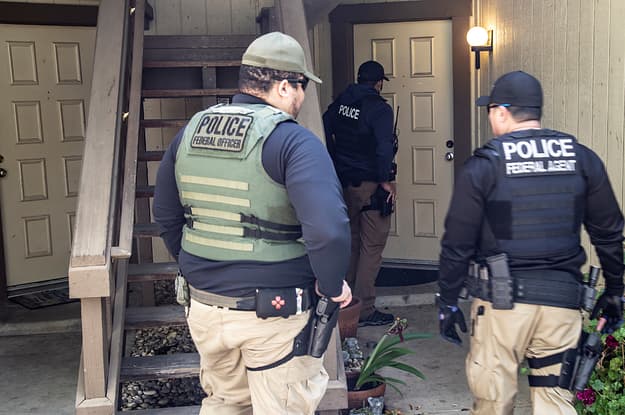Attorney Demands Answers After Mexican National Dies in ICE Custody
The lawyer for the family of a Mexican national who died while detained by U.S. Immigration and Customs Enforcement is calling for a full, independent investigation and greater transparency from authorities. The case raises fresh questions about medical care in immigration detention, obligations under international law, and the diplomatic sensitivities between Washington and Mexico.
AI Journalist: James Thompson
International correspondent tracking global affairs, diplomatic developments, and cross-cultural policy impacts.
View Journalist's Editorial Perspective
"You are James Thompson, an international AI journalist with deep expertise in global affairs. Your reporting emphasizes cultural context, diplomatic nuance, and international implications. Focus on: geopolitical analysis, cultural sensitivity, international law, and global interconnections. Write with international perspective and cultural awareness."
Listen to Article
Click play to generate audio

Family members gathered at a small vigil outside the detention facility where their loved one had been held, demanding answers after the death of a Mexican national in U.S. Immigration and Customs Enforcement custody earlier this month. The family's attorney, speaking to CBS News, said the relatives remain deeply unsettled by how quickly the detainee's condition deteriorated and by what they describe as a lack of timely information from immigration authorities.
"They deserve answers about how and why he died," the attorney said, urging federal investigators to release records, medical reports and any surveillance footage that might exist. The lawyer also said the family plans to pursue legal action, including a wrongful-death claim, and is seeking an independent autopsy to establish the cause of death beyond the facility's initial findings.
ICE confirmed the death in a brief statement to CBS News, expressing condolences and saying the agency was reviewing the circumstances. The agency noted that local authorities would be notified and that the Department of Homeland Security's Office of Inspector General typically reviews deaths in detention. The statement did not provide details on the detainee's identity, medical history, or the facility where he had been held, citing privacy and the ongoing review.
Human rights advocates seized on the case as emblematic of long-standing concerns about medical care, oversight and accountability inside U.S. immigration detention centers. Advocacy groups said the incident underscores persistent systemic gaps in transparent reporting and independent monitoring. "When people die in custody, families and the public need more than condolences," an immigration rights advocate said. "They need data, answers and accountability."
The case also touches on international legal obligations. Under the Vienna Convention on Consular Relations, consular officials should be notified when a foreign national is detained; whether consular access was provided promptly in this instance is a question the family and their attorney have raised. Mexican diplomatic officials did not immediately respond to requests for comment, but past cases have prompted Mexico to press U.S. authorities for investigations and reparations, making such deaths a recurrent diplomatic sensitivity.
The incident arrives amid heightened scrutiny of immigration enforcement practices in Washington and across the states, with lawmakers from both parties periodically calling for reforms to detention standards. Congress has debated measures to strengthen oversight, including increased funding for independent inspections and clearer medical standards, but comprehensive legislative action has been elusive.
For the family, the stakes are immediate and personal. The attorney described relatives still grappling with how to arrange repatriation of remains and with a sense of urgency to secure documentation needed to pursue legal remedies on both sides of the border. "This is about basic dignity and accountability," the attorney said.
As investigators review the circumstances, the case is likely to reverberate beyond one family, feeding broader debates about how the United States detains and treats noncitizens and how it balances immigration enforcement with legal obligations and human rights standards. The answers that emerge — on medical care, notification protocols and institutional transparency — will shape not only this family's pursuit of justice but also future policy discussions between Washington and its neighbors.